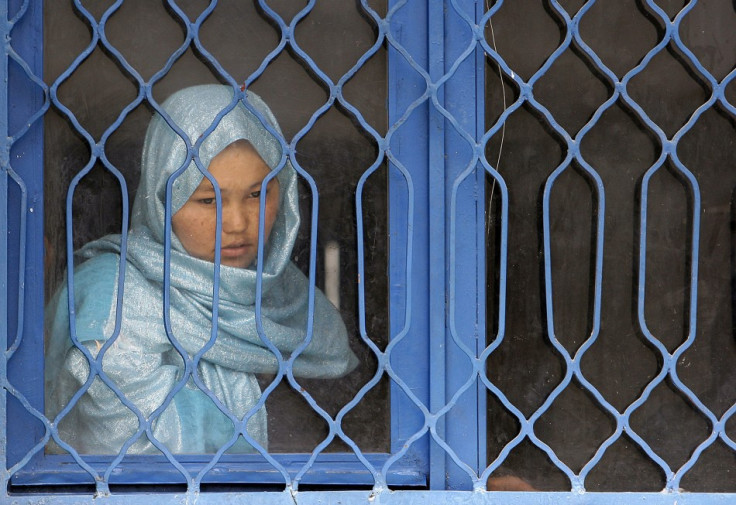Shariah Law: Women Continue to be Jailed for 'Moral Crimes' in Afghanistan

Twelve years on from the ousting of the Taliban and its barbaric laws, Afghanistan remains a brutally chauvinistic society in which women who suffer domestic violence often end up in prison themselves.
That is according to a new report published in the Huffington Post, which gives an insight into the condition of Afghanistan's female prisons and the country's legal system.
According to the director-general of prisoners, Gen. Amer Mohammad Jamsheed, about 650 women are in prison nationwide, and "most are in jail for moral crimes", ranging from fleeing an abusive husband to living with the man of their choice.
One of Kabul's biggest prisons, Badam Bagh, houses 202 female inmates, some serving seven-year terms for fleeing their marriages. The prison also harbours 62 children, sleeping in the same bunk beds as their mothers.
According to a United Nations Assistance Mission in Afghanistan (UNAMA) report entitled Implementation of the Law on Elimination of Violence against Women in Afghanistan (EVAW), "running away" or "home escape" is not a crime under Afghan or Sharia Law.
However, in the formal judicial system, a woman who runs away is charged with the intention to commit adultery.
If a woman runs away to escape harassment or abuse and goes to a relative's house, it is not considered a crime. But if the woman goes to a stranger's house, irrespective of the reason for escaping, the act is illegitimate and punishable under Shariah Law.
There also are hundreds of cases of "honour killings" and female genital mutilations in Afghanistan each year. In an April press release, UN Women condemned three cases of honour killings in the month of March alone.
"UN Women is deeply concerned of the number of cases of so-called "honour killings" in Afghanistan", said Ingibjorg Solrun Gisladottir, Representative of UN Women in Afghanistan.
"In many parts of the country, government officials are implementing the Elimination of Violence against Women (EVAW) law, but we are concerned that it is only in a small percentage of cases involving violence against women. Most cases are neither registered nor investigated."
In one of the cases, a girl was buried alive by her father and brother in the Kishim district of Badakhshan Province, while in another case, a 14-year-old girl was killed when she refused to marry her fiancé in Herat province. A married woman was even killed by her own brother when she insisted on joining her husband in Iran.
According to the United Nations data, more than 300 women and girls were killed and more than 560 injured during the year 2012. The UN has blamed the ever-increasing number of cases of violence against women on the culture of the country.
"The majority is linked to domestic violence, tradition, culture of the country," UN special envoy to Afghanistan Jan Kubis had told reporters in March.
"Of course there are very clearly attacks on women's activists by the insurgency. Then, there are unfortunate situations when indeed women are killed while doing their daily chores (by unexploded bombs)."
© Copyright IBTimes 2025. All rights reserved.




















